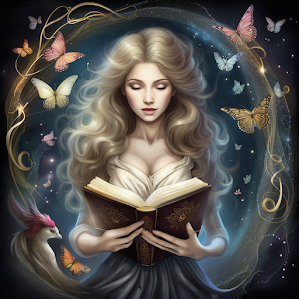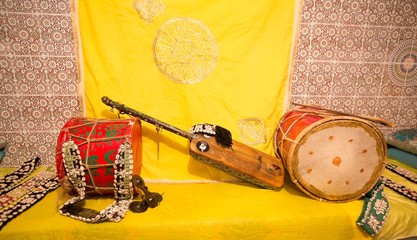Exploring the History and Culture of Moroccan Gnawa
In the
heart of Morocco, the ancient tradition of Gnawa music and culture resonates
with the beating pulse of the country. Rooted in centuries of history, Gnawa
has evolved into a vibrant expression of spirituality, rhythm, and collective
identity. This article delves into the rich history and cultural significance
of Moroccan Gnawa, a captivating musical genre deeply embedded in the fabric of
the nation.
Historical
Roots: The roots of
Gnawa can be traced back to the Gnawa people, descendants of Sub-Saharan
Africans who were brought to Morocco through the trans-Saharan slave trade.
Over the centuries, these communities preserved their cultural heritage,
blending African spirituality with Islamic traditions and local Moroccan
influences. Gnawa music, therefore, stands as a testament to resilience,
adaptation, and the fusion of diverse cultural elements.
Spiritual
Practices and Rituals: Gnawa is not merely a musical genre; it is an integral part of
spiritual practices and rituals. The Gnawa community, led by maâlems (masters),
engages in healing ceremonies known as "Lilas." These rituals combine
music, dance, and prayer to invoke spiritual energies and provide healing for
various ailments. The Gnawa believe in the power of the "Lila" to
connect with the divine, cleanse the soul, and bring about physical and
spiritual well-being.
Instruments
and Musical Elements:
Central to Gnawa music is a unique array of instruments that contribute to its
distinctive sound. The "gimbri" or "sintir," a
three-stringed lute, takes center stage, producing deep, resonant tones that
set the rhythm for the ensemble. Accompanying percussion instruments like the
"krakebs" (metal castanets) and vocals create a hypnotic and
trance-inducing musical experience. The intricate interplay of these elements
reflects the Gnawa's deep spiritual connection and rhythmic mastery.
Cultural
Fusion: Moroccan
Gnawa is a fusion of African, Arab, and Berber cultural elements. It
exemplifies Morocco's history as a crossroads of diverse cultures and serves as
a living testament to the country's rich tapestry of traditions. The rhythmic
patterns and melodies reflect the cultural diversity of the Gnawa people,
capturing the essence of both their African roots and their Moroccan home.
Global
Influence and Recognition: In recent years, Gnawa music has transcended its cultural boundaries
and gained international recognition. Its infectious rhythms and soul-stirring
melodies have captured the attention of global audiences, leading to
collaborations with artists from various genres. Festivals dedicated to Gnawa,
such as the Gnaoua World Music Festival in Essaouira, attract musicians and
enthusiasts from around the world, fostering cross-cultural exchange and
appreciation.
Preservation
Efforts and UNESCO Recognition: Recognizing the cultural significance of Gnawa, UNESCO declared the
Gnawa and Sufi cultural space of Morocco as a Masterpiece of Oral and
Intangible Heritage of Humanity in 2019. This acknowledgment highlights the
importance of preserving and promoting Gnawa traditions for future generations.
Efforts are underway to safeguard the authenticity of Gnawa practices and
ensure their continued vitality in Morocco's cultural landscape.
Contemporary
Expressions and Evolution: While rooted in tradition, Gnawa has also evolved to embrace
contemporary influences. Younger generations of Gnawa musicians are exploring
innovative fusions with genres like jazz, blues, and electronic music. This
blending of traditional and modern elements not only preserves the essence of
Gnawa but also ensures its relevance in a changing cultural landscape.
In
conclusion, Moroccan Gnawa is a captivating cultural phenomenon that transcends
music, encompassing spirituality, history, and communal identity. Its rhythmic
spirit echoes the resilience of a community and the harmonious fusion of
diverse cultural influences. As Gnawa continues to captivate audiences
worldwide, it stands as a testament to the enduring power of cultural
traditions to bridge gaps, foster understanding, and celebrate the rich mosaic
of human expression.


No comments:
Post a Comment